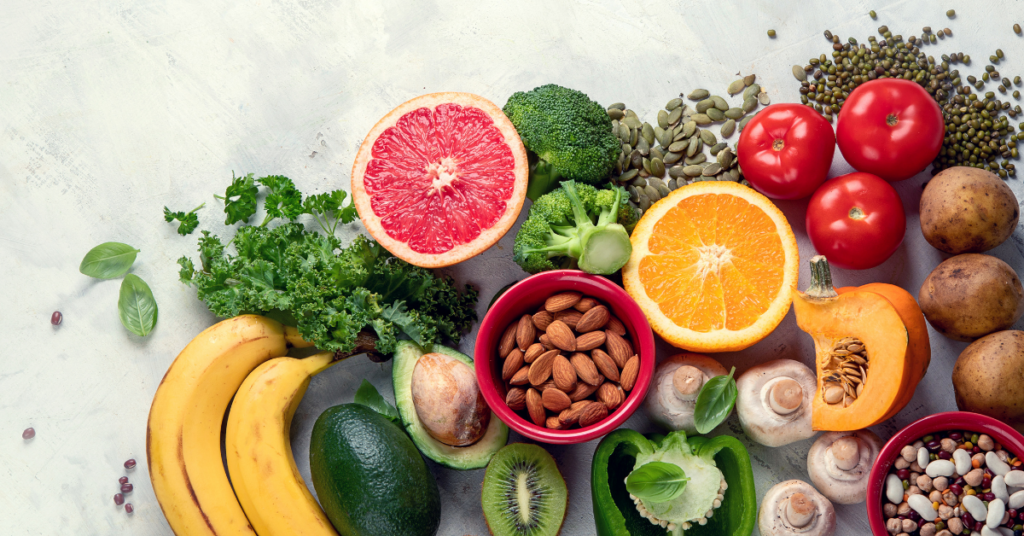Dr. Michael Greger M.D. stated that 98% of Americans have a potassium deficiency due to inadequate plant food intake. The average adult needs about 5,000 milligrams of potassium per day.
Potassium vs. Sodium
At the Budwig Center cancer clinic, we have understood that a cornerstone of an effective cancer treatment program is to follow what many studies have found regarding potassium and sodium. We encourage the consumption of foods that boost potassium and curb salt and sodium at our clinic. Potassium will push the sodium out of the body. However, if a person has a high sodium intake, the opposite will happen – the sodium will push potassium out of the body.
Since sodium causes high blood pressure and contributes to inflammation, which is directly linked to many diseases, we need to lower our salt intake as much as possible. Even though they are good natural options, it is best to use Himalaya Salt and Celtic Sea Salt sparingly.
Potassium and Cancer
When someone is sick, the first thing you notice is that they are lethargic and low on energy. To combat this, Dr. Budwig gave her patients a daily mixture of flaxseed oil and Quark (cottage cheese), which dramatically increased their oxygen levels and subsequently gave them an energy boost. She also encouraged fresh fruit and vegetables and green juices, which increased potassium levels.
Nevertheless, too much potassium can be dangerous. This is commonly the case when taking supplements that contain high levels of potassium. Furthermore, Dr. Budwig discouraged the consumption of artificial vitamin and mineral supplements. So, we encourage our patients to get an appropriate intake from healthy foods that are known to be rich in potassium, such as the following:
- 1 cup of white beans has 1189 milligrams (31 percent DV)
- Avocado: 1 whole: 1,067 milligrams (30 percent DV)
- Swiss Chard has 961 mg (20% DV)
- One single medium baked potato has 941 mg (20% DV)
- Acorn Squash: 1 cup: 896 milligrams (26 percent DV)
- Spinach: 1 cup cooked: 839 milligrams (24 percent DV)
- Sweet Potato: 1 large: 855 milligrams (24 percent DV)
- Dried Apricots: ½ cup: 756 milligrams (22 percent DV)
- One cup of black beans 739 mg (16% DV)
- Tomato sauce with 728 mg (15% DV) in each cup
- Pomegranate: 1 whole: 667 milligrams (19 percent DV)
- watermelon wedges 641 mg (14% DV) of potassium
- Coconut Water: 1 cup: 600 milligrams (17 percent DV)
- 1 cup of cooked, sliced beets delivers 518 mg (11% DV)
- Banana: 1 large: 487 milligrams (14 percent DV)
We also must warn that if a person’s kidney function is low, they might not handle a diet too rich in potassium, and it would be good for a physician to supervise their potassium levels. Don’t hesitate to contact our Budwig team if you have any specific questions.
View this post on Instagram
Cancer Patients With Very Low Energy Levels
Patients that are especially weak and lethargic would need to add ubiquinol to their diet. Ubiquinol is similar to CoQ10 but is superior in bioavailability and provides far-ranging health benefits. Additionally, it is a critical component for the production of energy in every aerobic cellular system.
We all need ubiquinol. It is a coenzyme – made naturally in the body and plays a critical role in creating cellular energy. It is found inside the tissue of energy-demanding organs such as the heart, brain, liver, and kidneys. Ubiquinol exists in virtually all our cells and tissues.
Interestingly, heart attacks are still a leading cause of premature deaths, so ubiquinol provides more good news. There is now overwhelming evidence that it can go a long way toward optimizing energy levels, slowing down the aging process, and improving the quality of life.
Other studies have shown ubiquinol has a positive effect on:
- inflammatory processes
- septic shock (which is also associated with mitochondrial dysfunction)
- cardiac arrest recovery
- stroke recovery and periodontal disease (including gingivitis and dry mouth)
It is recommended to take between 50-200 mg/day, although many clinical studies dosed up to 300mg daily with little to no adverse side effects. It largely depends on how severe your condition is. It is also recommended to take between meals or with food.
Watch this video to learn how Dr. Budwig help improve the energy levels of her patients:
Final Thoughts
Increasing potassium and lowing sodium can slash your stroke risk by 21% and may also lower your odds of developing heart disease. Potassium is a vital mineral that protects blood vessels from oxidative damage and keeps vessel walls from thickening. Unless you’re on dialysis or have another particular condition, consuming an excess of potassium from natural foods is rare. Avoid supplements such as potassium salts, which can lead to nausea and vomiting.
For more information, feel free to contact us.
Additional reading:
- The Top 10 Nutrient-Rich Foods
- 7 Foods and Supplements That Starve Cancer
- Foods That Help To Fight Pain
Sources:
